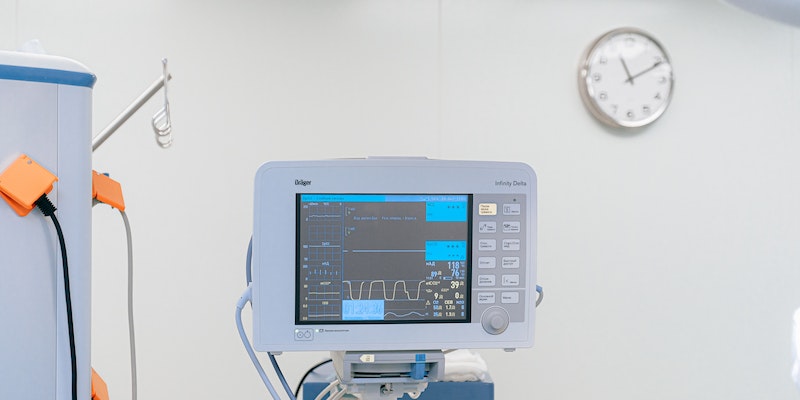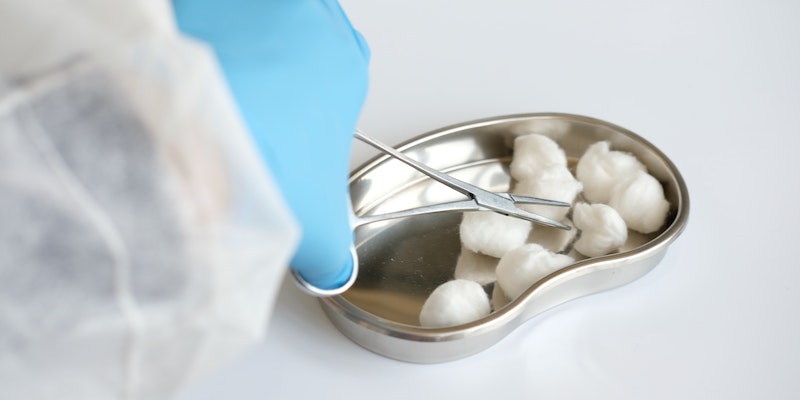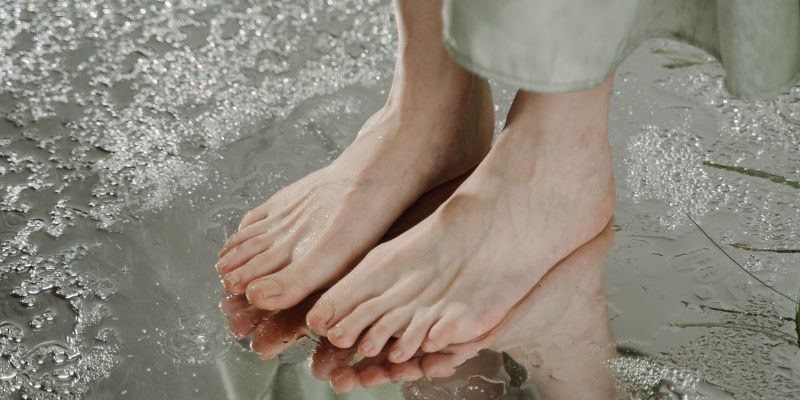
You may be wondering about the question of why are my hands and feet sweating all of a sudden. Sweating is the body's natural method of temperature regulation through perspiration. Because it is mainly water, sweat evaporates from the skin to cool the blood and the rest of the body when it is too warm.
The feet alone account for nearly a quarter of the average person's daily sweat production. Although sweating is necessary for good health, problems can arise from either insufficient or excessive perspiration. Your feet are the most sweaty area of your body. About 250,000 sweat glands may be found in each foot.
Sweaty feet are common since there are more sweat glands per square inch in the feet than everywhere else on the human body. Feet sweat more in hot weather and during physical activities that raise core body temperature.
Some people, however, have the opposite problem, and their feet sweat profusely no matter the season or their degree of exercise. Hyperhidrosis, which causes excessive sweating, may affect around 5% of the population.
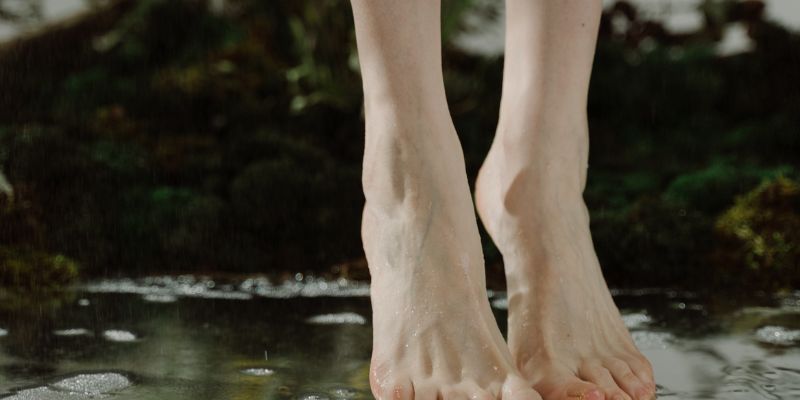
What Factors Lead To Excessive Sweating Of The Feet?
A definitive cause of hyperhidrosis has yet to be identified. However, researchers have figured out what happens to those who suffer from this illness. It all starts with the nerves in your body sending signals to your sweat glands to begin sweating.
Perspiration glands overreact and generate excessive perspiration when stimulated by hormones, emotions, physical exertion, or brain signals that the body is overheated. Thus, in the case of perspiring feet, nerves send signals to the glands in the feet to sweat, although the feet don't need to sweat as often as they are told to maintain a comfortable body temperature.
Hyperhidrosis is believed to have a genetic component; however, additional study is required to identify the specific genes involved. Generalized hyperhidrosis is the medical term for excessive sweating brought on by a systemic disorder. Hyperhidrosis typically results in excessive sweating all over the body, not only in one localized area, such as the feet.
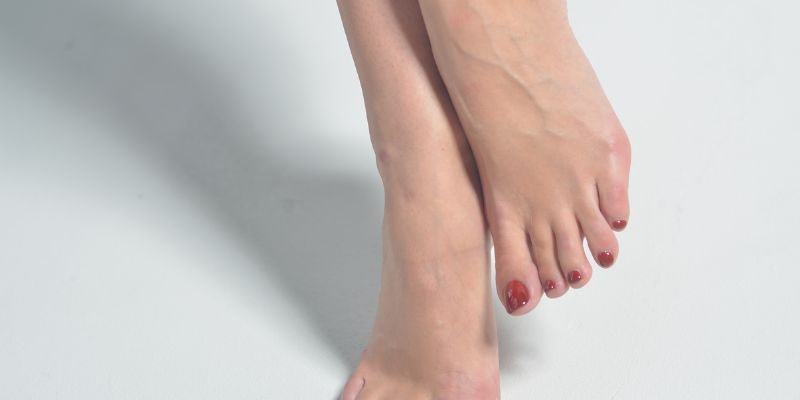
Possible Health Effects Of Excessive Foot Sweat
The health of your feet may be compromised if you have hyperhidrosis feet or consistently sweat a lot. The flesh on your feet will get damp from sweat. When you wear socks and shoes, you trap that moisture against your skin, where bacteria may thrive.
It's only normal for bacteria to multiply on your skin, socks, and footwear. This bacteria thrives in warm, damp environments and can cause problems such as foot and nail fungus if allowed to spread and produce an unpleasant odor.
Smelly feet are medically referred to as bromodosis. Up to 15% of the population suffers from this complication of sweating too much. Although it seldom causes serious health problems, bromodosis can be unsightly.
Sweaty feet are typical for foot and nail funguses because fungi flourish in warm, moist conditions. Dry, raw, and itchy skin are symptoms of foot fungus, whereas nail fungus typically manifests as flaky, discolored nails. Athlete's foot is a frequent form of foot fungus.
Hyperhidrosis Treatment Of Feet
Use Breathable Material Shoes
Avoid wearing boots and sports shoes, as these are the worst offenders when retaining moisture. Choose an item made of breathable materials like canvas or leather. Swap your shoes occasionally to ensure each pair stays as dry as feasible.
Add another line of protection against foot odor with replaceable absorbent insoles. Also, take the time to let your feet breathe by removing your shoes (and socks) whenever possible.
Do A Daily Foot Wash
To treat plantar hyperhidrosis, paying special attention to personal cleanliness is necessary. You should wash your feet every day at least twice if possible. Dry your feet completely, especially in the spaces between your toes, after washing them in either of these methods. Bacterial and fungal diseases of the foot are more likely to occur on damp feet.
Antiperspirants
The IHS recommends antiperspirants as a first-line therapy because of their low cost, ease of use, and lack of invasiveness. Perspiration-stopping sprays and roll-ons operate by temporarily blocking perspiration glands.
You should put them on before night and remove them in the morning (or at least 6 hours later). Your antiperspirant block will last longer because you sweat less when you sleep. You may want to see a doctor before using this method on extremely sensitive skin.
Use Antifungal Powders
You are more likely to get athlete's foot, a fungal infection if you have hyperhidrosis of the feet. If you want to avoid foot fungus, keep your feet dry. Powdered cornstarch is a popular option for preventing foot moisture loss. Many people also have good luck using over-the-counter antifungal powders.
Botox Injections
Botox injections are commonly used to treat excessive sweating in the underarms and the palms and soles of the feet. However, there are pain-relieving procedures that competent medical professionals can utilize.
You should know that Botox injections into the plantar surface of the foot can be uncomfortable and that the effects don't last as long as they do in the subcutaneous tissue of the armpit. Injections of Botox into the foot often "wear off" after three to four months, at which time you will need to return for more treatment.
Home Remedies
You may try several natural solutions if your excessive perspiration is causing you embarrassment. They effectively reduce perspiration by restoring a healthy pH balance; there is no reason not to use them.
Conclusion:
Sweat glands are the body's natural thermostat, activating in response to a fast increase in core body temperature. A rise in core body temperature can occur suddenly for several causes. Keep in mind that everyone has a varied reaction to these suggestions.
A visit to the doctor isn't usually necessary for plantar hyperhidrosis, but it's always an option if the condition persists. Suppose you experience more widespread sweating, chills, weight changes, and other symptoms. In that case, your doctor may inquire about medications that might be exacerbating the problem, or they may check for another reason.
